fuel tank INSPECTION
SERVICES
Fuel inspection and testing services are an essential part of ensuring the safety and reliability of fuel storage tanks. By identifying and correcting potential hazards, fuel inspections can help to prevent spills, leaks, and other incidents.
If you own or operate a fuel tank, it is important to have it inspected regularly by a qualified inspector. Digertt’s team can ensure that your tank is safe and that you are in compliance with the law.
FUEL TANK
Inspection and
Maintenance Services
Fuel inspection services are essential for ensuring the safety and reliability of fuel storage tanks. These services can help to identify potential hazards, such as leaks, corrosion, and structural damage, before they lead to a spill or other incident.
There are a variety of fuel inspection services available, including:
visual inspections
These inspections involve a visual examination of the tank and its components, looking for signs of damage or corrosion
Non-destructive testing (NDT)
These tests use non-destructive methods to inspect the tank for internal defects, such as cracks or voids.
Pressure testing
This test involves pressurizing the tank to a specified level to ensure that it is structurally sound.
Integrity testing
This test uses a variety of methods to assess the overall condition of the tank, including its structural integrity, corrosion resistance, and leak detection capabilities.
TYPES OF
FUEL STORAGE TANKS
Fuel tanks are essential for storing and managing fuel, but their design and placement can impact their safety and environmental risks. There are two main types of fuel tanks, each with its own characteristics and maintenance needs:
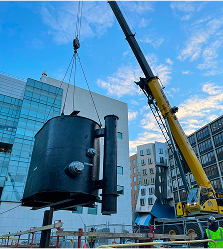
UNDERGROUND STORAGE TANKS (USTs)
USTs are buried underground and are more common than aboveground tanks. However, they pose a higher risk of environmental contamination in the event of a leak.
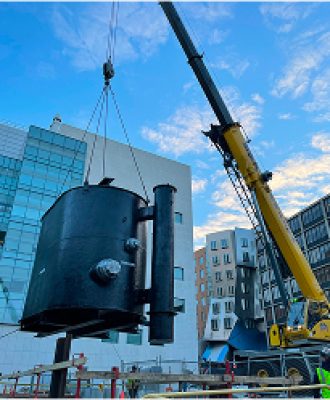
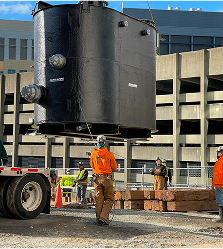
MODERN HIGH TEMP PIPING SYSTEMS
ASTs are located above ground and are less likely to leak. However, they still present potential hazards if not properly maintained.
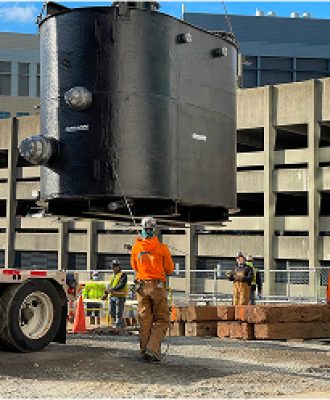
FUEL INSPECTION regulations
The federal government and many state governments have regulations that govern the inspection and maintenance of fuel tanks. These regulations are designed to protect human health and the environment from the risks associated with fuel spills.
The most important federal regulation governing fuel tanks is the Spill Prevention, Control, and Countermeasure (SPCC) rule. The SPCC rule requires owners and operators of USTs to develop and implement a plan for preventing, detecting, and responding to spills.
The SPCC rule also requires owners and operators of ASTs to comply with certain design, construction, and maintenance requirements.
Connecticut Operators: Click here for the latest state regulations.
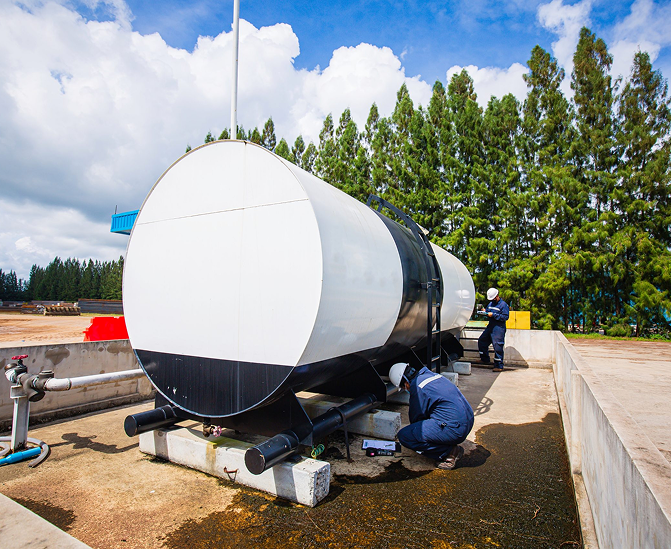
the beneficts
of fuel inspection services
Fuel inspection services offer a number of benefits, including:
Reduced risk of spills and leaks. By identifying and correcting potential hazards, fuel inspections can help to reduce the risk of spills and leaks.
Improved tank integrity. Fuel inspections can help to identify and repair structural damage, which can improve the overall integrity of the tank and avoid tank failure.
Increased compliance with regulations. By complying with the SPCC rule and other regulations, owners and operators of fuel tanks can help to protect human health and the environment.
ensuring quality and compliance Through expert inspections
Many states require certified inspectors to ensure quality fuel inspections. Digertt’s certified team follows the latest standards and can identify potential hazards. In partnership with MassTank, we offer annual tank maintenance, inspections, and emergency repairs for water, chemical, and fuel oil tanks.
DETAILED SERVICES
Fabrication Services

